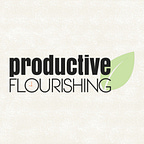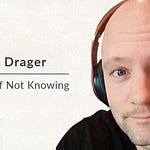Carey and Demir Bentley are the founders of Life Hack Bootcamp. This husband and wife team joins Charlie to talk about how radical self-care is the key to unlocking better work and more happiness. This topic is important to us all, because so many people think about their work as getting more work done – often, at the expense of living a better life. Both Charlie’s and Carey and Demir’s businesses center on helping people live rich, flourishing lives – to do that, you often have to shift your focus from your work, to your life.
Key Takeaways:
[2:25] – “The end of all human action is flourishing.” – Aristotle made this point to convey that we do things to thrive; we’re not just doing stuff for the sake of doing stuff. We often get into the habit of thinking that if we just get stuff done, the self-care, flourishing and thriving will happen. This usually does not end up being the case.
[3:30] – In a Protestant work-ethic culture, there is a dangerous attitude about work: work is its own reward and you don’t need any rest. A deeper aspect of this culture is that your happiness and salvation also rely upon how hard you work. However, studies show that the most successful people don’t overwork themselves, and they value rest and self-care.
[6:17] – If you buy into this culture, it can become a vicious cycle of always working to obtain the next level of happiness – it doesn’t encourage us to be content with where we are. In reality, the amount that we work and push ourselves is not correlated with how happy we are. Taking time for self-care can actually help you achieve rapid results without overworking yourself. There are two moments when people usually surge ahead: the first, when someone is sick of their work, but the more important one is after they’ve come off a long period of rest.
[9:10] – Whenever there is a gap between focusing on getting something done and moving to something else, we have a tendency to fill it with something. We don’t know how to just allow ourselves five minutes to sit and think or chill out; we have to be doing something. It’s not enough to just take time off; it’s important to ask yourself if that time is truly restful.
[12:50] – Charlie discusses how his metrics of productivity have shifted now that he has his book deal. This has allowed him to do a qualitative audit of how he spends his time. Back in June, he set some new parameters for himself to avoid burnout, and when evaluating how it was going, his new metric became not necessarily what the category of work was, but rather how much he enjoyed it. When deciding how to spend your non-working time, it’s important to pick something that rejuvenates and replenishes your energy, not something that drains it. Often times, what’s comfortable is not nourishing, and what’s nourishing is not comfortable.
[18:30] – When you’re thinking about self-care, you might have to introduce a little more work in the sense that you pick an activity that may not be comfortable to do (exercise, for example), but that has payoff at the end.
[18:55] – Carey and Demir started a new course called FAST Force, which focuses on time mastery as four aspects that work together: Focus, Attitude, Stamina and Time. You have to have and use all four of these things to achieve time mastery. They have people budget out all the hours in the week, not just their working hours.
[23:05] – What’s missing in the productivity conversation these days is that you have to operate powerfully so that you can live powerfully. Sometimes it’s the reverse, and you have to live powerfully to operate powerfully. Charlie, Demir, and Carey share how this has played out in their lives with regards to career and lifestyle.
[27:00] – When talking about personal change and self-mastery, you have to dial in what motivates you. As you move forward, you have to decide whether you’re willing to give something that you value up in order to make a change. In Charlie’s experience, most people aren’t willing to give up the thing they enjoy, but this allows them to create a firmer boundary so they are able to keep it and modify something else.
[30:15] – Commit yourself to the things you want to do that will rejuvenate you, and that becomes a solid thing in your calendar. This will help ensure you get to do it every day, rather than leaving it as something you will do if you have time after work. Where people really get rejuvenated is when they have self-time alone doing the things that fill them up. The things that really fill our cup don’t cost anything.
[32:05] – If you do feel the urge that you need to be more successful, ask yourself what’s driving that. A lot of times, our underlying attitudes can sabotage us without us even realizing it. Demir talks about the movie Office Space. The lesson of the movie is that when you decide first who you want to be and how you want to live, and then restructure work around that, it’s the beginning of tremendous success. This is how Carey and Demir have been able to create their flourishing lifestyle that brings them joy in both work and play.
[36:00] – You don’t have to wait for the burn out or a wake-up call to start making the incremental changes that will benefit your self-care and make your life better. We find that when we really dig into what makes successful and happy people successful and happy, it’s the little things that they’ve made time to do that revive them. Give yourself the space to want what you want, and optimize yourself around that. It doesn’t mean you have to give up your success; it could actually be the start of the most successful times of your life.
[42:45] – If you’re listening to this and it’s a lot to take in, you may not have found that thing that primes the pump for you. It’s about finding the activities that will help you make the most of the 168 hours you’re given in the week. Programming your personal time can help you enjoy it more.
[46:00] - There are some areas in life where a scarcity mindset is beneficial. Time is a precious resource, and when we value our time, we allocate it with care and intention. There is enough time to be a good parent, a good business person, or a good person in your community, but you really have to get into a positive scarcity mindset.
[49:35] - Carey is a huge proponent of integrating your work to-do list with your personal to-do list. Put everything on one to-do list and prioritize it all together. When there’s a reason, we find ourselves doing miraculous feats of productivity.
[54:10] - If it’s worth doing, it’s worth planning to do. Whatever activity you’re doing, do it extremely. Make it worth your time and attention. What is an extreme example of being a good employee, or an extreme example of a good parent? Being extreme is a fundamental underpinning of how we think about approaching life.
[59:24] – Carey’s challenge for listeners is to think about one thing that you’ve always pushed away from yourself as being too silly or childish, or a dream that you’ve had, and take an action that commits you to that. Chunk it down to something you can get a taste of in 15 minutes. Demir challenges listeners to realize that life is precious, and we don’t know how long we’ll be here. Really step into that emotionally and fully appreciate the 168 God-given hours each week. Ask yourself what you would do if you had to apply for a new 168 hours each week.
Mentioned in This Episode:












